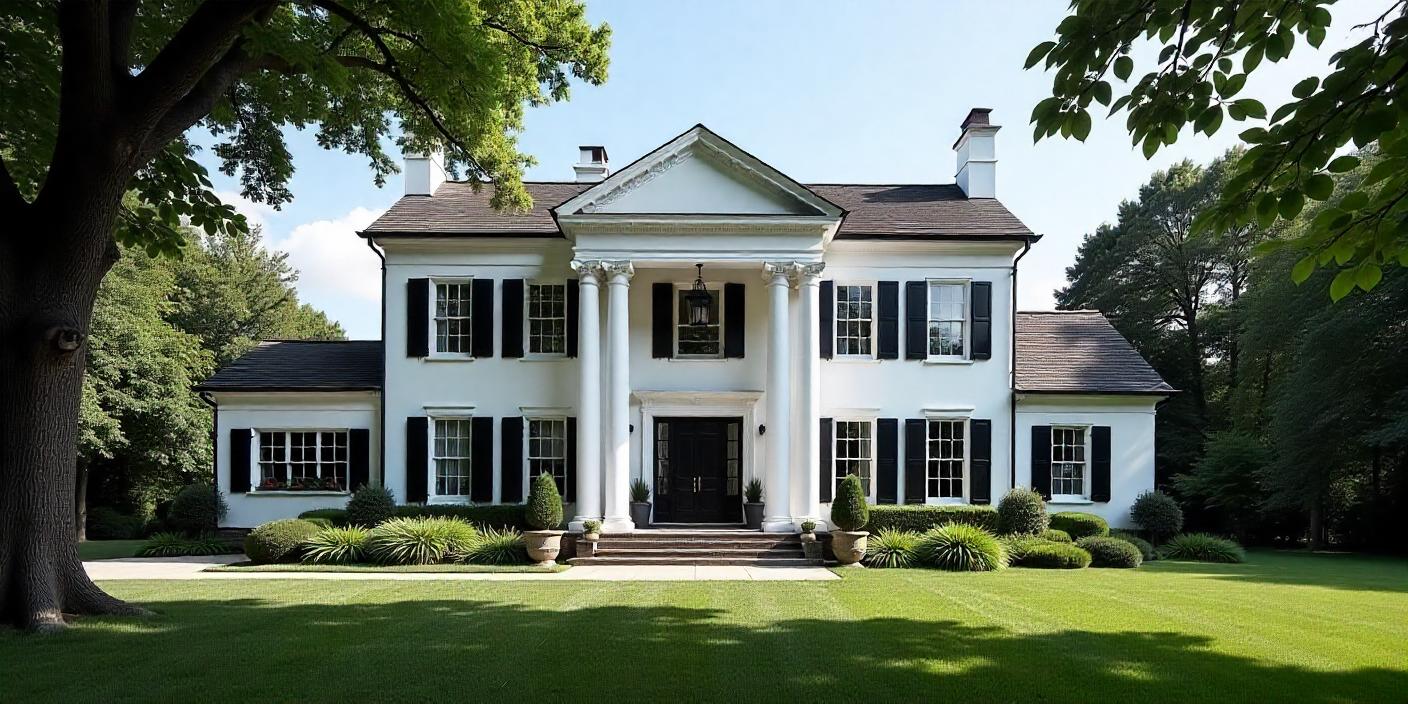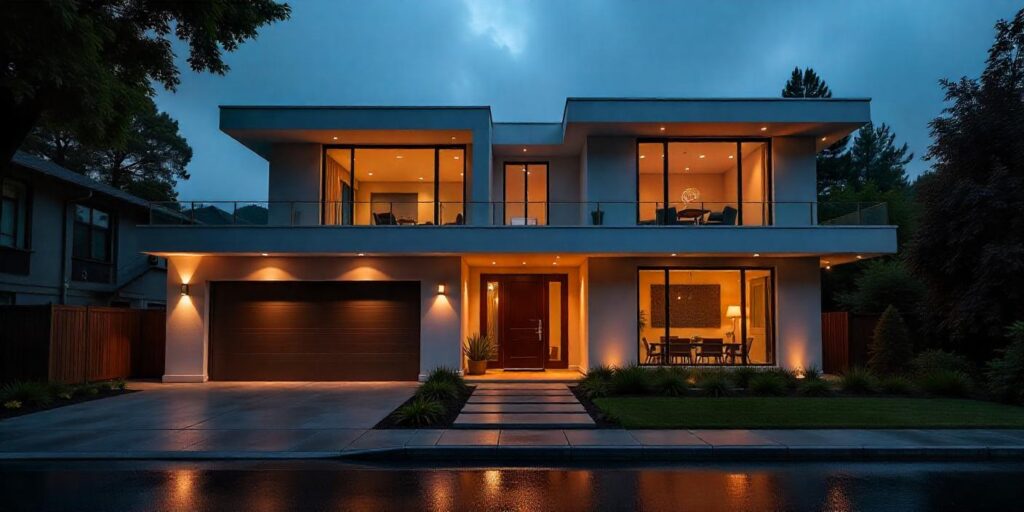Choosing the perfect home need not be something that is tough or challenging. There are various aspects future home owners can look into before making the final decision on purchasing a property. Here are some tips and tricks future home owners can be aware of when searching for the best home for them and their family.
Choosing The Perfect Home By Prioritising Space And Layout
Picking the ideal home for your expanding family depends on location and layout and is of great importance to guarantee long-term suitability, functionality, and comfort. Begin by assessing the number of bedrooms and bathrooms needed, taking into account upcoming development as children age or if you intend to grow your family.
Visibility can be improved by an open floor plan, which simplifies working or cooking while looking after youngsters. Search for properties with flexible space, including a guest room that doubles as a playroom or a nursery, a home office that becomes a nursery. Another critical consideration is storage — plentiful closet space, installed shelves, and a well-arranged kitchen will help your home run efficiently and avoid mess.
Also take into the movement within the house. A design featuring linked communal spaces like a large kitchen opening into the dining or living room fosters family communication and bonding. For young kids, a home with few stairs and spacious corridors may be more available and secure. Another key aspect of your house is outdoor space, which offers space for play, leisure, or even future home extensions.
A wise long-term investment is to have flexible spaces like a basement, attic, or extra room for changes as your family's requirements change. Giving a well organised room and design top priority does not only improve everyday living but also guarantee that your house meets your expanding family's needs.
Choosing The Perfect Home By Looking For Expansion Potential

Picking the perfect house for your expanding family depends on your ability to search for expansion options and is fundamental to ensure longterm flexibility and comfort. Finding a house that will grow with you is essential since your family will expand and your need for room will also.
Consider properties with uncompleted areas such basements and attics for extra bedrooms, a flexible plan of living or numerous levels of living space.Future possibilities include a play area, an additional room, or an outdoor entertainment zone, all of which might be constructed on a big backyard. Seek houses with office space or flexible nooks if you intend to work from home or have children needing a study area.
Aside, consult local zoning laws to see if house extensions or renovations could be possible in the future. One could use a more generous garage house for a workshop, extra room, or general storage. Deciding a house with room to grow allows you to plan for how your family's needs could change whether it be supporting elderly parents, building a nursery, or replacing a separate recreational area.
Buying a home with room to expand along with your family can spare you the headache and cost of relocating once more. Emphasising properties with space for development guarantees that your house stays a comfortable and functional sanctuary for many years to come.
Choosing The Perfect Home By Evaluating Storage Solutions
Deciding on the ideal house for your expanding family demands consideration of storage options so you can keep a well-kept and uncluttered environment. From baby gear and toys to seasonal clothing and household essentials, a family's possessions grow along with their size.
Giving priority to houses with much built-in storage that is, large closets, kitchen cabinets, and a well-stocked pantry ensures that everything has been assigned a place. While extra storage in the entryway or mudroom can fit shoes, backpacks, and coats, walk-in closets in bedrooms might help to keep garments and accessories tidily arranged. A garage with integrated shelves or an attic and basement with good organisation options can free up more room for infrequently used things.
Smaller rooms can have more space by means of multi-functional furniture such as ottomans that double as containers or beds with storage drawers. Open floor plans could limit wall space for storage, so hidden storage solutions or built-in shelving such as under-stair compartments could be quite helpful. Furthermore important is planning ahead for future storage needs children's possessions will increase over years, and thinking ahead can help to avoid clutter.
Furthermore, boosting home efficiency are houses fitted with dedicated laundry rooms, linen closets, and bathrooms with plenty of storage. When you visit possible houses, evaluate whether the existing storage solutions match your lifestyle and if they provide space for future modifications. Selecting a family-friendly home depends on top of functionality, also on a well-organised house which helps to create a stress-free and welcoming living environment.
Choosing The Perfect Home By Considering Home Safety Features

Selecting the ideal house for your expanding family calls for giving first priority to safety features to guarantee a safe and cozy living environment. Begin by assessing the structural safety of the house to avoid accidents: robust stair rails, non-slip flooring, and childproof windows.
If the house has several stories, think about where safety gates should be positioned to keep little ones off from stairs. Another key amenity, a fenced yard offers children a secure outdoor playground and also keeps them guarded from stray animals or traffic. Improve general house security by looking for top-of-the-line door and window locks, as well as dependable motion sensor and video surveillance system. Fire safety is likewise a top concern, check that the house has operating smoke alarms, carbon monoxide detectors, and easy and fast fire extinguishers.
Furthermore, check the power outlets and electrical wiring to make sure they are up-to-date and childproofed to minimise electrical risks. Look for pool covers, security fences, locked gates, if the house has a swimming pool; these will help lower the chances of drowning accidents. So make absolutely sure the property is clear of mould, asbestos, and lead-based paint, all of which can present health hazards to kids; still one more thing to think about is good interior air quality.
Good lighting both indoors and outdoors also lowers the likelihood of trips and falls, thereby improving safety even more. By closely examining these safety features, you can guarantee your future house gives a warm and safe environment for your young family.
Choosing The Perfect Home By Planning For Long Term Affordability
Long-term affordability must be a top consideration when you select a house for your expanding family. Think about the ongoing expenses of owning a house including maintenance, insurance, property taxes, mortgage payments, beyond the first purchase price.
If not wisely evaluated, a house that looks cheap at present could turn into a financial hardship. Choose a residence within your budget but allow for unanticipated expenses including emergency situations, remodelling, or repairs. Furthermore, energy-efficient houses can considerably lower monthly expenses. Seek for homes with excellent insulation, appliances that conserve energy, and solar panels to reduce electricity expenses. Whenever feasible, look into local tax rates since they can differ significantly by area and affect your long-term financial situation.
Deciding a house in an area with a stable real estate market may also be astute since property value increases will help you in the future. Future lifestyle changes should also be taken under account; for example, would a smaller, manageable home with lower expenses be a better long-term option or will you need a bigger home as your family expands? Consider as well the cost of commuting, given that residences further from work or schools could entail greater transportation costs.
If possible, confirm whether there are homeowner association (HOA) fees as these may increase your monthly expenditures. By meticulously considering all these financial issues you can guarantee your house serves as both a source of comfort and stability for your family without overburdening your budget.





